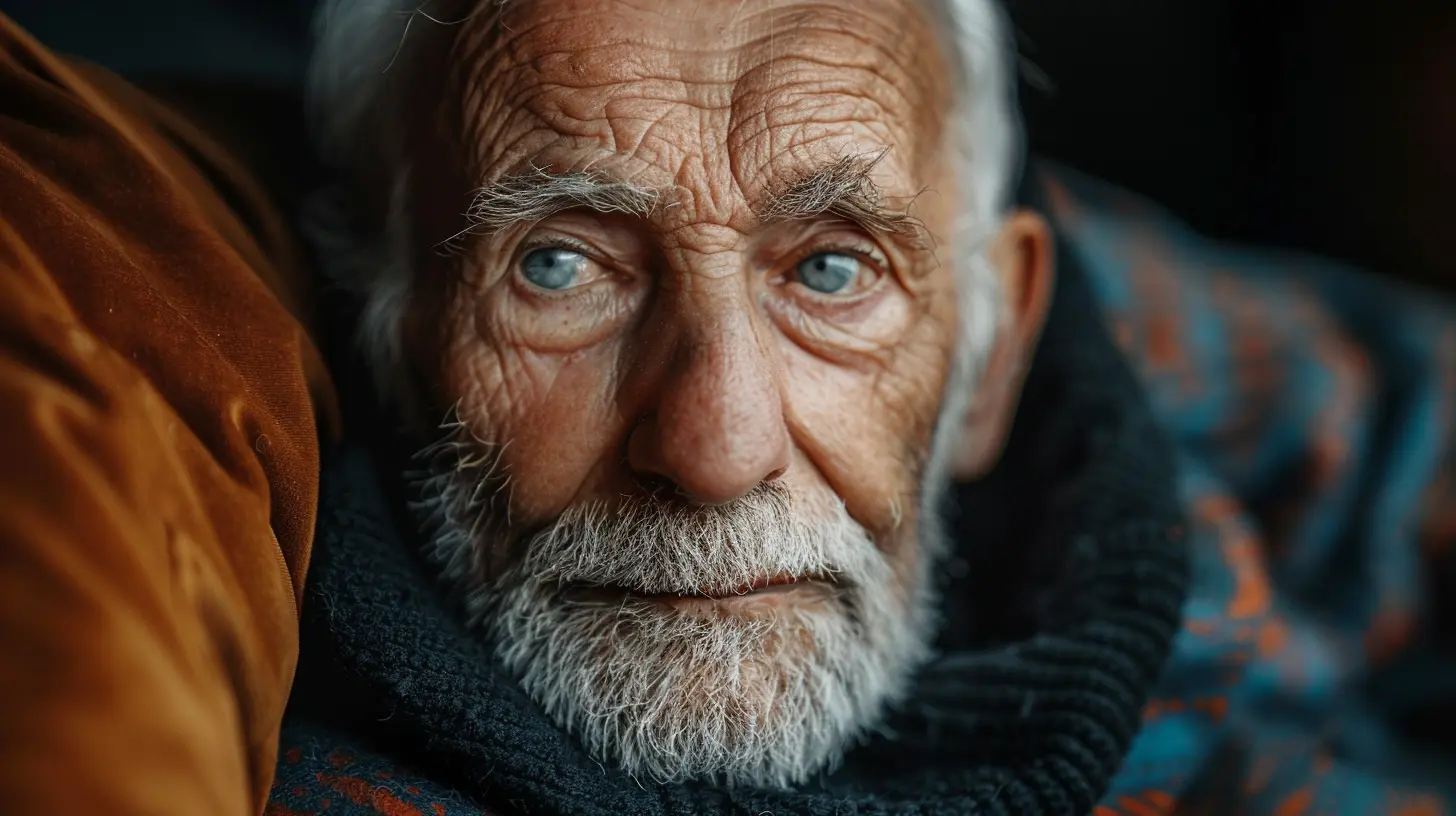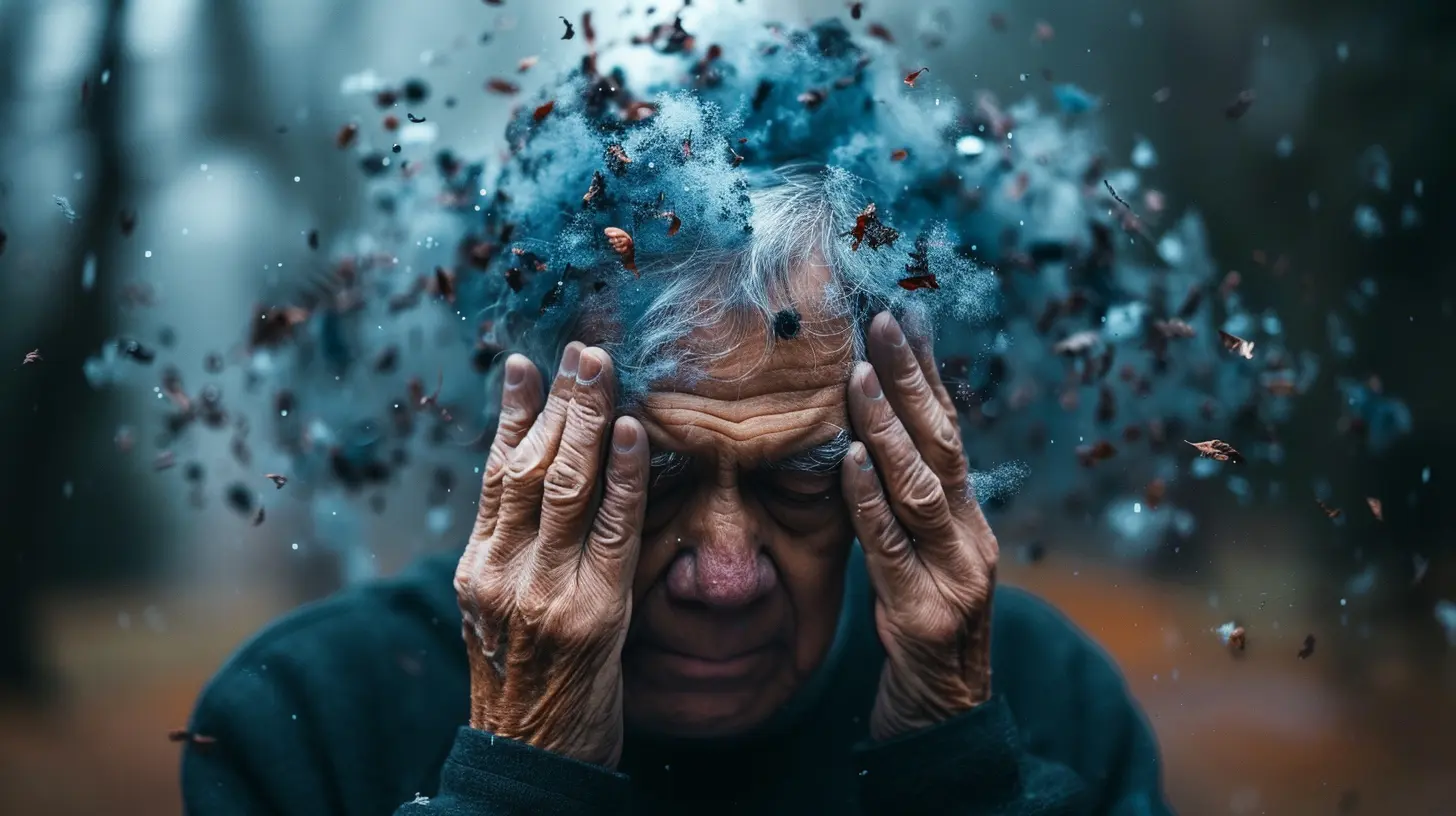Mental Health Stigma in the Aging Population: Breaking Barriers for Seniors
12 August 2025
Let’s take a moment to get real—mental health is still a taboo topic for many, but when it comes to our senior citizens, the silence can be deafening. While the world has made progress in understanding and accepting mental health challenges, the aging population remains largely overlooked and underserved.
Why? Because somewhere between “just getting old” and “they’re fine, they’ve lived this long,” we’ve created a bubble of stigma that traps many seniors in shame, fear, and isolation.
It's time to burst that bubble. It's time to break the silence and the stigma. It’s time we talk about mental health stigma in the aging population and how we can smash those invisible walls trapping our elders.

The Silent Struggle: Mental Health and Seniors
Here’s the truth—mental health issues don’t pick favorites. They don’t care how old you are. Yet, older adults are often expected to “tough it out,” as if struggling with anxiety, depression, or loneliness is some kind of personal weakness rather than a valid health concern.And let’s be honest, many seniors themselves have internalized this stigma. They grew up in an era where mental health wasn’t a dinner-table conversation—it was swept under the rug. So naturally, admitting they’re struggling might feel like confessing a crime.
But guess what? Suffering in silence doesn’t equal strength. And denying the problem won’t make it vanish.

Why Is Mental Health Stigma So Rampant Among Seniors?
We have to understand where this stigma is coming from before we can dismantle it. Here's what’s fueling the fire:1. Generational Beliefs
Older generations were raised during times when mental illness was associated with shame, institutions, or even moral failing. Therapy was viewed as something only for “crazy” people, not everyday folks with everyday problems.2. Fear of Dependency
Many seniors fear that admitting to mental health issues makes them look “incompetent” or “weak” to their families, doctors, or caregivers. They worry it might lead to losing their independence or being placed in a care facility.3. Lack of Awareness
Some seniors don’t even have the language to describe what they’re feeling. Mental health education was not part of the curriculum back in the day. If they feel sad, anxious, or disconnected, they might chalk it up to aging rather than recognize it as depression or another treatable issue.4. Limited Access to Care
Even if they want help, many elderly individuals face systemic barriers: lack of transportation, limited income, under-resourced communities, or just plain ageism in healthcare settings.
Breaking the Stigma: Why It Matters More Than Ever
By 2050, the number of adults over 60 is predicted to double. That’s a lot of people potentially suffering in silence if we don’t change the narrative.Let’s get something straight—mental health is not a luxury for the young. It’s a right. And seniors deserve compassionate, competent care just as much as anyone else.
Unpacking and confronting this stigma isn’t just about talking—it’s about action. It’s about showing our elders that their feelings matter, their struggles are valid, and their lives still have value.

Common Mental Health Challenges in Seniors
Mental health issues don’t wear name tags, but here’s what often affects the older population:Depression
This one’s a biggie. Many seniors face major life changes—retirement, loss of loved ones, chronic illnesses—that can trigger or worsen depression. Unfortunately, it often goes undiagnosed because symptoms get brushed off as “normal aging.”Anxiety
Aging comes with its fair share of worries: finances, health scares, loss of independence. It's no surprise many seniors deal with constant, low-level anxiety that drains them mentally and emotionally.Cognitive Decline & Dementia
Yes, these are neurological and not purely psychiatric, but the emotional toll they take is immense. And many seniors with early-stage dementia become depressed or anxious as they feel their grip on reality loosening.Loneliness & Social Isolation
Imagine going days without talking to someone. That’s reality for many older adults. Isolation is a silent killer—it ramps up stress, worsens physical health, and accelerates mental health decline.Smashing The Stigma: One Step At A Time
Let’s roll up our sleeves and talk solutions. Because while the problem is complicated, the mission is simple—treat seniors with dignity, agency, and support.1. Normalize the Conversation
If you have aging parents or grandparents, start talking about mental health openly. Ask how they're really feeling. Share your own struggles. Show them it’s okay to not be okay.2. Educate and Empower
Community centers, senior living homes, and even churches should integrate mental health education. When seniors understand the signs and symptoms, they’re more likely to seek help.3. Promote Peer Support
Let’s be real—therapy can feel intimidating. But chatting with peers who’ve “been there, done that” often feels more authentic and less scary. Support groups with relatable stories can be game-changers.4. Build Age-Friendly Mental Health Services
We need more therapists trained to work with older adults. Geriatric psychologists, counselors, and psychiatrists who understand the unique challenges of aging are crucial.Telehealth can also be a lifesaver—especially for mobility-challenged seniors. A phone or Zoom session can make mental health support more accessible than ever.
5. Train the Caregivers
Whether it’s family members or professional caretakers, they need training in recognizing mental health red flags, responding sensitively, and encouraging professional intervention when necessary.
Busting the Myths Surrounding Seniors and Mental Health
Let’s dismantle a few damaging myths while we’re at it:- “Depression is just part of getting old.”
Nope. It's not. It's common, but it’s not normal, and it sure as hell isn’t untreatable.
- “Seniors don’t want therapy.”
Actually, many do—they just might not know where to start or feel embarrassed about asking.
- “It’s too late to change.”
Not at all. You're never too old to benefit from mental health support. Healing doesn’t have an expiration date.
- “They must be fine—they’re always smiling.”
Seniors often mask their emotions. Sometimes, behind that smile is a silent cry for help.
What Can You Do Right Now?
Okay, let’s get practical. Whether you're a family member, caregiver, healthcare provider, or someone who just cares about this issue, here's what you can do:- Check in regularly with the seniors in your life. Really listen.
- Encourage communication around feelings, not just physical health.
- Help them find resources—support groups, therapists, online communities.
- Speak up if you notice signs of decline. Better to overreact than let something serious slide.
- Advocate for better policies and geriatric mental health services in your community.
The Bottom Line: Compassion Over Stigma
It’s 2024. We’ve got smartphones smarter than some people. Yet, we still ignore the mental health needs of an entire generation?That’s not just messed up—it’s dangerous.
It’s time to show up for our elders the way they've shown up for us. That means treating mental health like any other part of healthcare. That means asking real questions, listening to real answers, and making real changes.
So let’s ditch the silence, ditch the shame, and speak up. Because every senior deserves to age with dignity, strength, and a sound mind.
Every. Single. One.
all images in this post were generated using AI tools
Category:
Mental Health StigmaAuthor:

Ember Forbes
Discussion
rate this article
1 comments
Roxie Watson
Breaking mental health stigma in seniors? It's like convincing Grandma that kale is a superfood! Let’s swap the 'don’t air your dirty laundry' mindset for a 'let's air our funky laundry and dance!' after all, laughter is the best therapy!
September 10, 2025 at 4:33 AM

Ember Forbes
Absolutely! Embracing openness about mental health, just like enjoying kale, can transform how seniors view their well-being. Let’s encourage them to share their stories and find joy in the journey!


